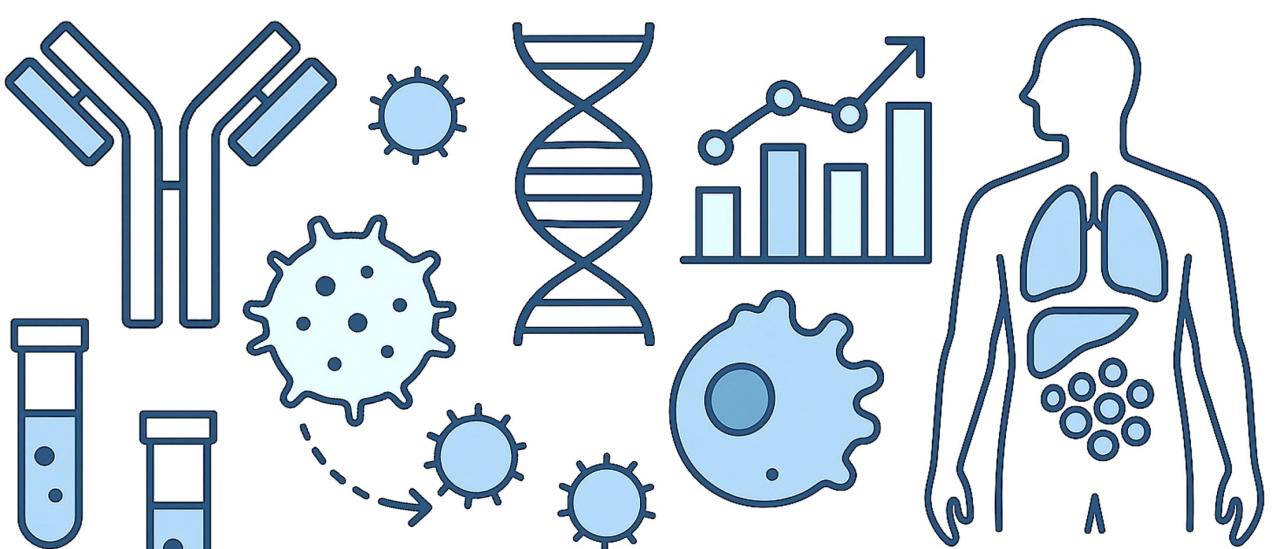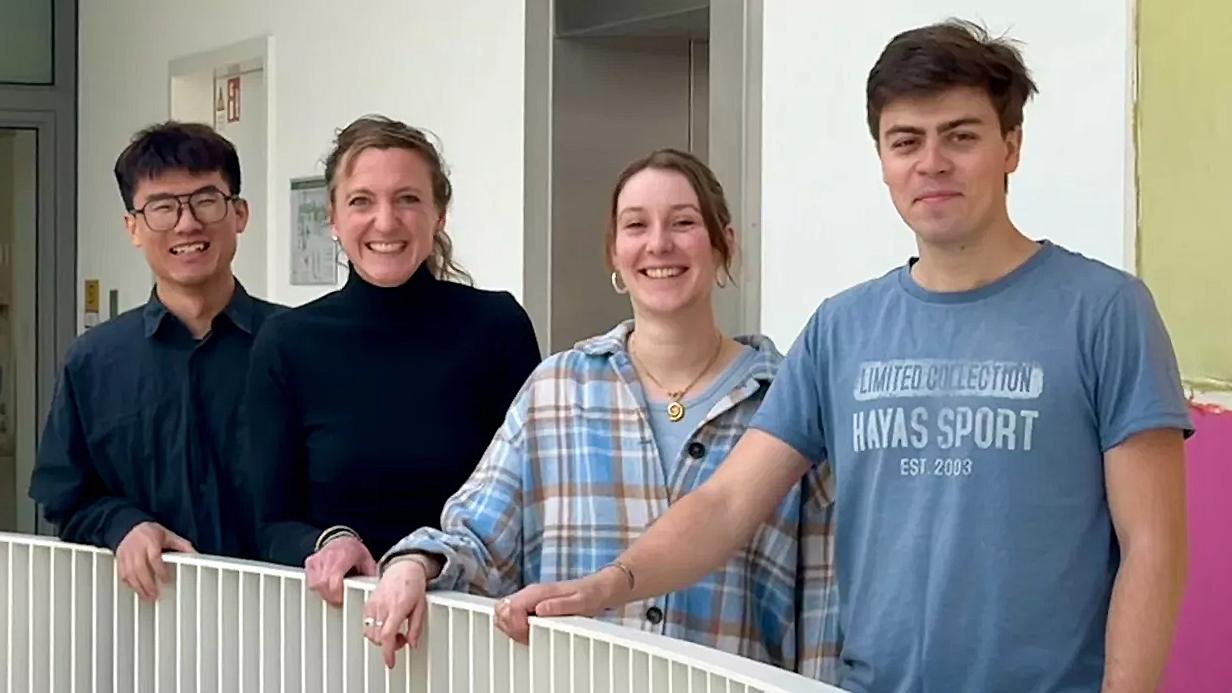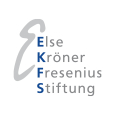
Immunotherapies that harness the body’s own immune system to eliminate cancer cells have led to major advances in the treatment of malignancies. However, only a subset of patients achieves durable responses, and the underlying mechanisms of resistance remain largely unknown. A central challenge lies in predicting which patients will respond to immunotherapy and how its efficacy can be extended to a broader population. In the Systems Immune Oncology group, we investigate how dynamic changes in cellular states within both tumor and immune cells contribute to immunotherapy resistance. Using multi-modal single-cell technologies—including transcriptomics, epigenomics, and surface protein profiling—we analyze the molecular mechanisms that regulate response and resistance to immunotherapies, with the goal of identifying novel biomarkers and therapeutic targets.
In our previous work, we demonstrated that dynamic changes in cellular states, particularly transcriptional and epigenetic reprogramming of tumor cells, are key drivers of immunotherapy resistance (Frede et al., Nat Cell Biol, 2021). At the same time, we found that transcriptional rewiring can lead to the expression of novel immunotherapeutic surface targets, as shown for CXCR4. Furthermore, we investigated how CAR-T cell therapy profoundly reshapes the endogenous T cell landscape in multiple myeloma and how these changes in turn impact therapeutic outcomes. In this context, we also showed that targeted immune checkpoint blockade can restore the fitness of exhausted T cells in CAR-T-refractory multiple myeloma (Waldschmidt et al., 2025, Blood Advances).
Our current projects integrate experimental and computational approaches to understand how specific cellular states within the tumor microenvironment are established and modulated. In particular, we study the interactions between immune and tumor cells and the influence of the local microenvironment on immune dysfunction and tumor progression. By deeply characterizing cellular programs at single-cell resolution, we aim to uncover fundamental mechanisms of therapeutic response and to develop new strategies to overcome resistance. Our long-term goal is to enable personalized treatment strategies for patients with hematologic and solid tumors and thereby significantly improve the efficacy and durability of immunotherapies.





Julia Frede studied Molecular Cell Biology at Heidelberg University. During her PhD in Oncology at the University of Cambridge, she investigated clonal dynamics and lineage tracing in models of esophageal cancer. After completing her PhD, she continued her research as a postdoctoral fellow at the Dana-Farber Cancer Institute and Harvard Medical School in Boston, USA. There, she focused on mechanisms of therapy resistance and immune dysfunction in multiple myeloma. Using innovative single-cell and multi-omics strategies, she was able to dissect complex interactions between tumor cells and the immune system. She later took on a junior group leader position within the German Cancer Consortium (DKTK) at Ludwig-Maximilians-Universität Munich. Since October 2024, she has been a Tenure-Track Professor for Systems Immune Oncology at the Technical University of Munich (TUM), where she leads an interdisciplinary research group at TranslaTUM, the university’s central institute for translational cancer research. Her group applies state-of-the-art single-cell, spatial, and computational technologies to investigate how dynamic cell states and tumor microenvironmental factors influence response and resistance to immunotherapy – with the goal of identifying new biomarkers and developing innovative therapeutic strategies for hematologic and solid malignancies.
Nivolumab to restore T-cell fitness in CAR-T refractory multiple myeloma.
Waldschmidt, J.M., Sotudeh, N., Arora, S., Vijaykumar, T., Anand, P., Stuart, H., Frede, J., Campbell, T., Kaiser, S.M., Zheng, X., Munshi, N.C., Anderson, K.C., Einsele, H., Yee, A.J., Knoechel, B., Lohr, J.G., Raje, N.S. (2025). Blood Adv 9, 1132-1136. doi 10.1182/bloodadvances.2024015285
B-cell intrinsic RANK signaling cooperates with TCL1 to induce lineage-dependent B-cell transformation.
Pfeuffer, L., Siegert, V., Frede, J., Rieger, L., Trozzo, R., de Andrade Kratzig, N., Ring, S., Sarhadi, S., Beck, N., Niedermeier, S., Abril-Gil, M., Elbahloul, M., Remke, M., Steiger, K., Eichner, R., Jellusova, J., Rad, R., Bassermann, F., Winter, C., Ruland, J., Buchner, M. (2024). Blood Cancer J 14, 151. doi 10.1038/s41408-024-01123-6
Dual role of signaling pathways in myeloma requires cell type-specific targeting of ligand-receptor interactions.
Hernandez-Lopez, P., Vijaykumar, T., Anand, P., Auclair, D., Frede, J., Knoechel, B., Lohr, J.G. (2024). Blood Adv 8, 3173-3185. doi 10.1182/bloodadvances.2023011463
Loss of metabolic fitness drives tumor resistance after CAR-NK cell therapy and can be overcome by cytokine engineering.
Li, L., Mohanty, V., Dou, J., Huang, Y., Banerjee, P.P., Miao, Q., Lohr, J.G., Vijaykumar, T., Frede, J., Knoechel, B., Muniz-Feliciano, L., Laskowski, T.J., Liang, S., Moyes, J.S., Nandivada, V., Basar, R., Kaplan, M., Daher, M., Liu, E., Li, Y., Acharya, S., Lin, P., Shanley, M., Rafei, H., Marin, D., Mielke, S., Champlin, R.E., Shpall, E.J., Chen, K., Rezvani, K. (2023). Sci Adv 9, eadd6997. doi 10.1126/sciadv.add6997
Regulatory Programs of B-cell Activation and Germinal Center Reaction Allow B-ALL Escape from CD19 CAR T-cell Therapy.
Im, N.G., Guillaumet-Adkins, A., Wal, M., Rogers, A.J., Frede, J., Havig, C.C., Yang, J., Anand, P., Stegmann, S.K., Waldschmidt, J.M., Sotudeh, N., Niu, L., Voisine, J., Schweiger, M.R., Grassberger, C., Lohr, J.G., Knoechel, B. (2022). Cancer Immunol Res 10, 1055-1068. doi 10.1158/2326-6066.CIR-21-0626
Single-Cell Profiling Reveals Metabolic Reprogramming as a Resistance Mechanism in BRAF-Mutated Multiple Myeloma.
Waldschmidt, J.M., Kloeber, J.A., Anand, P., Frede, J., Kokkalis, A., Dimitrova, V., Potdar, S., Nair, M.S., Vijaykumar, T., Im, N.G., Guillaumet-Adkins, A., Chopra, N., Stuart, H., Budano, L., Sotudeh, N., Guo, G., Grassberger, C., Yee, A.J., Laubach, J.P., Richardson, P.G., Anderson, K.C., Raje, N.S., Knoechel, B., Lohr, J.G. (2021). Clin Cancer Res 27, 6432-6444. doi 10.1158/1078-0432.CCR-21-2040
Dynamic transcriptional reprogramming leads to immunotherapeutic vulnerabilities in myeloma.
Frede, J., Anand, P., Sotudeh, N., Pinto, R.A., Nair, M.S., Stuart, H., Yee, A.J., Vijaykumar, T., Waldschmidt, J.M., Potdar, S., Kloeber, J.A., Kokkalis, A., Dimitrova, V., Mann, M., Laubach, J.P., Richardson, P.G., Anderson, K.C., Raje, N.S., Knoechel, B., Lohr, J.G. (2021). Nat Cell Biol 23, 1199-1211. doi 10.1038/s41556-021-00766-y
Single-cell RNA-seq reveals developmental plasticity with coexisting oncogenic states and immune evasion programs in ETP-ALL.
Anand, P., Guillaumet-Adkins, A., Dimitrova, V., Yun, H., Drier, Y., Sotudeh, N., Rogers, A., Ouseph, M.M., Nair, M., Potdar, S., Isenhart, R., Kloeber, J.A., Vijaykumar, T., Niu, L., Vincent, T., Guo, G., Frede, J., Harris, M.H., Place, A.E., Silverman, L.B., Teachey, D.T., Lane, A.A., DeAngelo, D.J., Aster, J.C., Bernstein, B.E., Lohr, J.G., Knoechel, B. (2021). Blood 137, 2463-2480. doi 10.1182/blood.2019004547
Genomic discovery and clonal tracking in multiple myeloma by cell-free DNA sequencing.
Guo, G., Raje, N.S., Seifer, C., Kloeber, J., Isenhart, R., Ha, G., Yee, A.J., O'Donnell, E.K., Tai, Y.T., Richardson, P.G., Bianchi, G., Laubach, J.P., Warren, D., Gemme, E., Voisine, J., Frede, J., Kokkalis, A., Yun, H., Dimitrova, V., Vijaykumar, T., Meyerson, M., Munshi, N.C., Anderson, K.C., Knoechel, B., Lohr, J.G. (2018). Leukemia 32, 1838-1841. doi 10.1038/s41375-018-0115-z
A single dividing cell population with imbalanced fate drives oesophageal tumor growth.
Frede, J., Greulich, P., Nagy, T., Simons, B.D., Jones, P.H. (2016). Nat Cell Biol 18, 967-78. doi 10.1038/ncb3400
